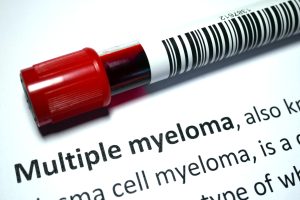
Cancer and COVID-19: What You Need To Know
The spread of the novel coronavirus and its aftermath has left us with many questions. For example, many of us wonder how we can protect
HIPAA Alert: Potential Data Breach Learn More
Questions on Oncology, Hematology and/or Infusion Clinical Services due to COVID-19 Crisis – CALL 833-698-1623
Important Information for Our Patients Regarding the Coronavirus.
RCCA Providing Area Cancer Patients with Access to Care During Coronavirus Outbreak
RCCA Offering Patients Virtual Visits During Coronavirus Pandemic
Pancreatic cancer is challenging to detect, as people often do not experience symptoms until the disease has metastasized. However, proper diagnosis and treatment may help a patient manage the damaging effects of this disease. The expert oncologists and hematologists of Regional Cancer Care Associates treat many cancer types and blood disorders, including pancreatic cancer. Patients throughout New Jersey, Connecticut, Massachusetts, and the Washington, D.C., area rely on these doctors to provide compassionate care and cutting-edge treatment.
Several risk factors increase the likelihood that a person may develop pancreatic cancer, although the presence of one or more does not mean that a person will develop the disease. And, fortunately, some of the most significant risk factors for this cancer are behaviors that people can change. Risk factors include:
While a patient may change his or her diet or stop smoking to reduce risk, other factors are outside of people’s control. These include:

If a physician determines that a patient has symptoms of pancreatic cancer, the doctor may conduct tests to confirm the diagnosis and determine the extent of the disease. Initial steps taken to identify pancreatic cancer include a physical examination, medical history evaluation, and imaging.
Several blood tests also help doctors diagnose pancreatic cancer, including measurement of tumor markers. These markers are proteins that may be elevated in people with pancreatic cancer. Other blood screenings include liver function tests and complete blood count (CBC). A physician may also order a biopsy of the pancreas.
The staging process assesses whether cancer has spread throughout the body, and – if so — how far it has spread. The process helps doctors formulate the best treatment plan for a specific patient. Researchers have established five main stages of pancreatic cancer:
Stage 3: Cancer has affected major vessels and nerves, as well as lymph nodes.
Sometimes doctors use a separate, simpler system for staging pancreatic cancer to determine whether it can be surgically removed. This approach divides pancreatic cancer into removable, borderline removable, and not removable cases.

Patients needing compassionate pancreatic cancer care from experienced providers should turn to Regional Cancer Care Associates. With oncologists and hematologists at 25 community-based care centers across New Jersey, Connecticut, Massachusetts, and the Washington, D.C., area, RCCA is dedicated to providing comprehensive care to patients with cancers and blood disorders. Contact one of these locations today for more on pancreatic cancer treatment.
Regional Cancer Care Associates (RCCA) oncologists have been trained at the world’s most distinguished medical institutions. Our experts have proven their leadership as professors, clinicians and researchers. At RCCA, we focus on you, individually. We offer high-quality, advanced treatment — close to home — and work with you and your family to make sure your care is second to none.
To get more information, or to schedule an appointment, call (844) 346-7222. You can also contact the RCCA location nearest you.

The spread of the novel coronavirus and its aftermath has left us with many questions. For example, many of us wonder how we can protect

In some families, there’s an abnormal gene that gets passed from one generation to the next and that causes cancer. A person who inherits this

Multiple myeloma (MM) is a rare type of blood cancer that often develops without early symptoms, making awareness of risk factors essential. Regional Cancer Care
When standard cancer treatments aren’t providing the results you want, clinical trials may offer hope. Our physicians use clinical trials to study new treatments, helping transform cancer care for the better. You can enroll in a clinical trial to try groundbreaking treatment plans at zero cost to you.

Regional Cancer Care Associates is one of fewer than 200 medical practices in the country selected to participate in the Oncology Care Model (OCM); a recent Medicare initiative aimed at improving care coordination and access to and quality of care for Medicare beneficiaries undergoing chemotherapy treatment.